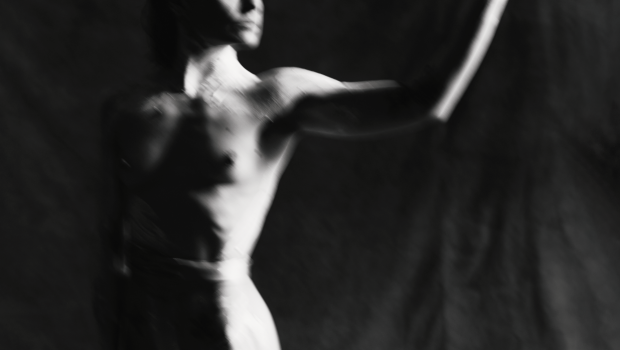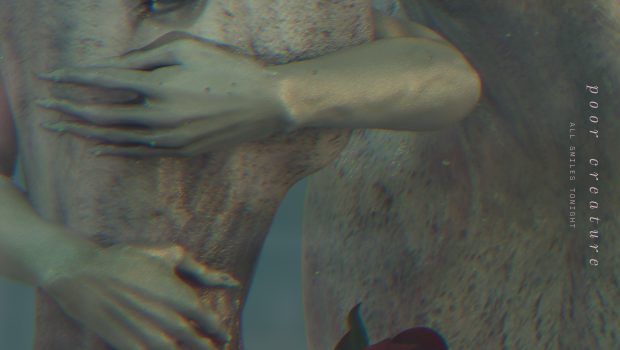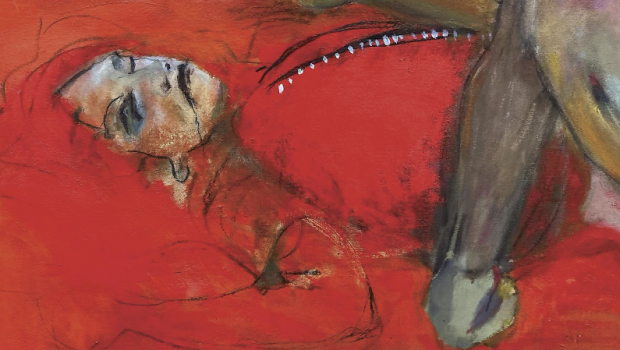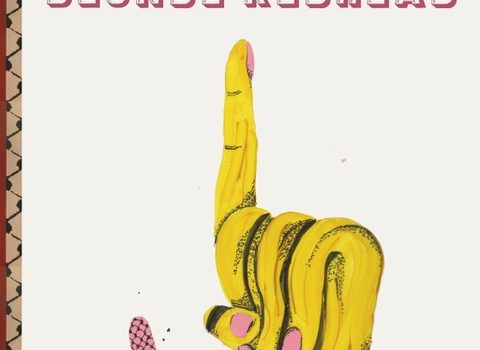 It has been a tumultuous time for Héloïse Letissier since the release of 2018’s ‘Chris’. April 2019 brought the sudden death of his mother while Christine and the Queens were performing at the Coachella festival. In addition to handling the grief of that momentous personal loss has come the subsequent liberation of announcing that he was now self-gendering as male, although wanting to revel in contradictions and refusing to be confined by binary terms.
It has been a tumultuous time for Héloïse Letissier since the release of 2018’s ‘Chris’. April 2019 brought the sudden death of his mother while Christine and the Queens were performing at the Coachella festival. In addition to handling the grief of that momentous personal loss has come the subsequent liberation of announcing that he was now self-gendering as male, although wanting to revel in contradictions and refusing to be confined by binary terms.
Inevitably, Letissier chose to mark these events with sweeping gestures. His third album, ‘Redcar les adorables étoiles’, sees the unveiling of a new persona, Redcar, inspired by the preponderance of red cars he saw after his mother’s death, perhaps reflecting the idea of red as a colour of danger and emotion. As one of the supreme visual performers, it is already impossible to separate the album from the image on his recent Later appearance – besuited, with hair slicked-back, a red glove and cane, emoting next to a statue of the archangel Michael to whom Redcar has been praying for 2 years.
The album was recorded over a fortnight on his computer with the self-imposed restriction of making a song per day. it was conceived in operatic terms as a prologue to another album in the new year recorded with Mike Dean whose CV includes production work for Kanye West, Drake and Madonna.
Sung predominantly in French, with 11 of the 13 titles being in his native tongue, the language’s expressive character, which could make even the most prosaic sentiments sound like rich emotions, befits the album. Opening track, ‘Ma bien amiee byebye’ with its synth washes, bass drops and multi-layered voice hitting heights, is a song of life-long love and eternity being snatched away. ‘Tu sais ce qui’ilmefaut’ spins with a vocal intensity like a dance music Jacques Brel. In its references to soldiers and battalions, it introduces imagery that plays a significant role in the album as in the subsequent ‘La chanson duchevalier’ (The Knight’s Tale) which sets its swordplay to electronic fireworks and a more pastoral ending.
A 1980s sheen glows over the album, exemplified by ‘les etoiles’, an appropriately starry tune with big electronic drums, domineering keys and heavy bass, all topped with Redcar’s celestial vocals, its imagery of churches, chants of the condemned, eternity and heavens reflecting another of the album’s recurrent themes. ‘Looking for love’ also has that 1980s vibe, sweeping in on crisp synth drums, the chorus’ vocal layers echoing prime Eurythmics, an act that also had a playful approach to gender expectations and whose finest moment featured angels.
‘Redcar les adorables étoiles’ tingles with romance, especially the gentle ‘rien dire’, a tender song of love and surrender while ‘Je tu vois enfin’, like ‘Tilted’ and ‘Girlfriend’ from the preceding two albums, is an outstanding pop song, though a soul-searching piece as well. The ballad ‘A La Clairefontaine’ sees love as a miracle and its title references an old traditional French song.
Clocking in at over 8 minutes, ‘Combien du temps’ has a measured funk-dub bass line recalling Grace Jones’ 1980s hits, giving space for one of Redcar’s most impassioned vocals. However, there is plenty of mischievous wordplay riffing off the similarity between “pêcheur” (fisherman) and “pécheur” (the sinner) and references to licking the cock, early in the morning playing upon “coque du bateau” which means the boat’s hull but Redcar intentionally wrote cock in English within the French text. ‘Les ames amantes’ is a suitably grand conclusion, conjuring souls.
CATQ have a Bowie-esque capacity for chameleon-like reinvention, although Redcar gives every impression of living it rather than acting out a character. While ‘Redcar les adorables étoiles’ lacks the pop immediacy of ‘Chris’, repeated listens gradually reveal its charms heightening anticipation of the next stage of their grand opera.
Christine and the Queens: Redcar les adorables étoiles– Out 11th November 2022 (Because Music)















